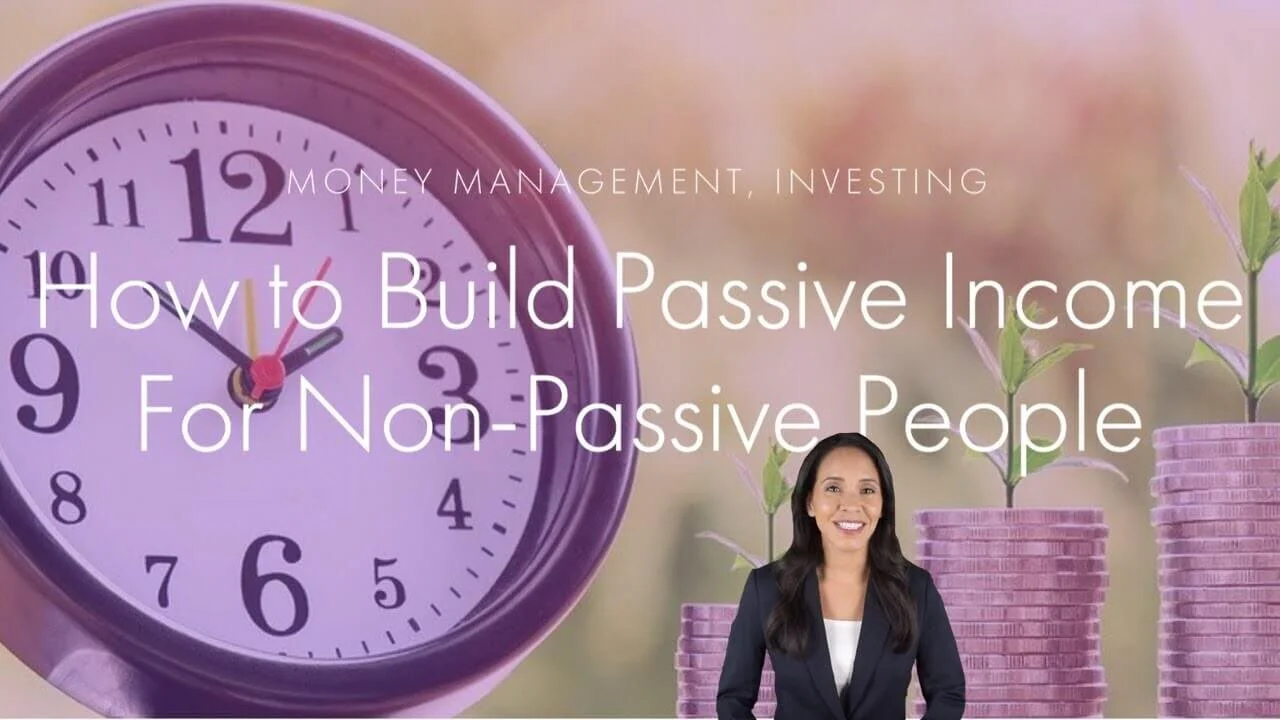How to Profit From Real Estate: Investing 101
Real estate is an industry that comes with great risk and the potential for great rewards. For as long as I can remember, the elders in my family and church have talked about how important it is to invest in real estate. Most financial advisers and wealthy people suggest getting into real estate in one form or another. Suffice it to say that investing in real estate is considered one of the best ways to wealth. Some even consider it to be the only way to wealth.
For those paving their road to financial stability, you are probably wondering how exactly to profit from real estate. What steps should you take? Where should you invest your money exactly? How can you actually make money?
There really is not just one answer to these questions. In fact, there are several routes that you can take to get started in the real estate industry. The “right” answer really depends on you, your personality, and how hands-on you want to get with your investment. The following are a few of the best ways to get started in real estate.
Flipping Houses
Thanks to television shows, flipping houses is probably the most popular way to profit from real estate. It is where you purchase a house that needs work and- hopefully- sell it for more than you have put into it. It can be a very enjoyable way to profit from real estate if you like that sort of thing. Fixing up a place that is in bad shape and turning it into something beautiful is therapeutic and gives you something to be proud of.
It Takes Time
However, it is not as easy as it seems to be on TV. The house flippers on television have more help than you generally see, and there really is no telling how much they spend on materials and labor. It also takes a lot longer than you see on a thirty-minute or even hour-long show. And that is their job- they are able to spend time flipping houses.
Having Help Is Very Useful
Most people who are trying to break into real estate by flipping houses have other jobs, do not always have money to make repairs, and generally do not have the laborers or the support that they need. Down the line, after they have been doing it for a while, that may change. In the beginning, though, they do most of it on their own.
If you want to profit from real estate by flipping houses, you should aim to have some money set aside for nothing but the work, try to work out some good working relationships with contractors and laborers, and have the time you need to dedicate to flipping a house. It can be done and it can be a very profitable career, but it takes some time to build up to that.
Residential Rentals
Many people profit from real estate through residential rentals. They purchase a home and rent it out to tenants. Sometimes, the landlords own the property outright. Other times, the landlords are paying on a mortgage while tenants are paying the rent.
In order to profit from real estate through residential rentals, the rental income needs to exceed the amount that the homeowner is paying out. If you rent out a home that you owe a $500 mortgage payment on each month, the rent you charge needs to be above $500. In truth, it needs to exceed it pretty well as you need to tuck money away for any necessary repairs, insurance, and other costs.
If you do not owe a mortgage, you can typically earn a higher profit from real estate rentals. However, you still need to charge enough to cover repairs, property taxes, insurance, and more. So, if you opted for a mortgage and are looking for which one to get, we suggest taking a look below, at today’s mortgage rates:
Passive Income
This is a pretty favorable way to profit from real estate as it is an ongoing and passive income. Flipping houses and some of the other options are “one and done” profits. You can make money off a residential rental for years and even decades to come. Or you can rent it out for a while and sell it when the value goes up. This allows you to earn ongoing passive income and then a lump sum later on.
For those who are limited on time or just lack the inclination to be a hands on the landlord, you do not have to steer clear of residential rentals. You just need to hire a property manager or management company. They can then handle phone calls, leasing, applicant vetting, evictions, repairs, and other things. They will defer to you if you need to make a decision about the property. Other than that, you pay them to do the work while you collect the profits.
Vacation Rentals
Vacations rentals are much like residential rentals except that you will be renting out your space for people on vacation. These will usually be short rentals- a couple of days to a week at a time- but some will last longer.
Vacation rentals can be an incredibly lucrative way to profit from real estate. I know someone who paid over $3,000 to stay in a condo for a total of five days and four nights. It was a beautiful place, but it was not even in a popular destination. Granted, they do not all cost that much, but they are able to charge this much because people pay it.
While it can be lucrative, there are a few things to take into account:
The Cost
First and foremost, you will need to buy property in a vacation spot. Even in less popular destinations, property value is high because of what it is: a tourist destination. You can expect to need a larger loan, which means larger mortgage payments.
Do remember, though, that you can charge a pretty penny, so you can definitely get help making those mortgage payments. And, once it is paid off, you have a big money maker on your hands. So, while it is expensive, you can make a lot of money.
There is a way to balance this out, though. If you charge enough during the busy months to make money but still low enough to keep the place constantly rented, you can probably put enough away to cover your mortgage in short months. The key will be not just going crazy with the money you make.
The Renters
Since your renters are just coming for a vacation, you probably are not going to vet them like you would someone who will be renting for a longer term. You will not know much if anything, about them at all. They could be very destructive people and destroy your vacation home. You never know who will be staying there.
As they are staying for such a short period of time, they probably will not be as vested in the property as someone who would live in it for a while. This is not to talk you out of it. I merely want to point out that there may be more damage done and more issues at a vacation rental than there would at a residential rental.
The Seasons
Since it is a vacation rental, there will be busy seasons and not so busy seasons. If it is near a beach, summer time will be your best season. If it is near a ski resort, snowy months will be your biggest money makers. Those that own property in places like Hawaii- where it is sunny and in the 70s or 80s most of the year- probably have renters year-round, but there is still a rainy season there.
The bottom line is that there will be times when you make good money and times when you do not. This may not be much of a problem if you own the home, but when you are still paying a mortgage, it can hurt. The slow seasons will be the times that you will be covering much of the mortgage payments on your own.
The Upkeep
Vacation rentals will require more upkeep than residential renters. Someone will need to come in and clean between renters and make any repairs. As mentioned a moment ago, the renters may be destructive, meaning that the number of repairs you have to deal with will likely be much higher than other rentals. It has the potential to cost you a lot.
Most people who own vacation rentals hire property management companies to handle all of the renting, cleaning, and repairs. This keeps them from having to travel or try to handle things from a distance. You should really consider hiring one yourself if vacation rentals is the way you choose to go.
If you live in a vacation spot, you could make some cash on the side by being the property manager. Offer your services to the rental owners and take care of things for them. You can make some money to purchase your own property, get to know the industry well, and build relationships, all without owning your own property yet.
The Insurance
You will need to have insurance on the vacation rental like you would any other rental. The difference is that your rates will probably be a lot higher. Allowing so many people to come in and out of your rental is considered risky to insurance companies, so you can expect high insurance rates.
Commercial Real Estate
Another way to profit from real estate is through commercial properties. Businesses will lease the space from you and you can make the monthly payments. If it is a commercial property with space for multiple businesses, you just might be able to pay off any loans long before your repayment term is up.
Reach Financial Freedom with the Accury Store.
Real Estate Funds and Stocks
There is another way to profit from real estate for those who are not really interested in dealing directly with the property. That is by investing through avenues such as mortgage investment corporations (MICs), real estate investment trusts (REITs), real estate investment groups (REIGs), mortgage-backed securities (MBSs), and similar things.
These are basically like investing in stock in a company or a mutual fund. While there are differences, of course, the basic idea is that owners of properties sell shares, just like a company sells shares. You invest money, someone else does the hands-on work, and you take part in the profits.
Auctions, Short Sales and More Buying Options
There are many ways to buy a house that work differently from traditional mortgages and purchase offers. Buying out a lease, short sales, auctions, and even buying a house mortgage can get you into real estate.
Auctions
Auctions are quite interesting to me. About eight years ago, a young girl I worked with told me that she and her husband bought a home. She was making about the same amount as I was- which was not enough to pay regular bills and save for a down payment- and she was younger, so I wondered how she was able to accomplish it.
When I asked her, she said that they paid $600 to buy this house. They had gone through a foreclosure auction to get it. I was intrigued, so I started looking into it. These auctions really do offer the chance of ownership for next to nothing on many homes, so it is a great avenue to look into, but there are downsides.
One of the biggest things that stopped me from ever making a move is that the properties I found were to be sold without us being able to see them. I need to know what I am facing before I purchase a house. What if it is missing the entire floor and all of the walls are torn out?
Some are not that bad, though. My coworker said that all they had to do was purchase a new kitchen sink, replace a cabinet door, and paint. If you are prepared to take such a risk, look into your local auctions.
An important note here before moving on is that with auctions, you need to have the money on hand. They are asking for cash- not another mortgage. Most of these homes are foreclosed on for small amounts of money- often back taxes- so you usually do not need a large amount of money. You might just get a small personal loan before attending the auction.
One more important note is this: With most of these homes, the previous owner has the right to come back and pay what they owe- usually for a year- and get the home back. Still, you could purchase it, rent it out for that year to be making money, and then make any other moves you want to make- such as selling it- after that year is up.
Short Sales
Auctions are helpful, but short sales are often the better option. When someone is close to foreclosure but not quite there, you can make an offer for less than what they owe on the home. If the seller and the lender both agree to that amount, you can purchase the home. Try not to go too low, though, with your offer. Sometimes, another person will come along looking to buy a mortgage for a better deal. You can offer lower than the total amount owed- just do not go too low.
After purchasing a house- regardless of the exact way you do it- you make any necessary repairs and updates. Even homes that are not in disrepair might benefit from a little TLC. For instance, putting a few hundred or a thousand dollars into upgrading a kitchen might get you an extra ten thousand or more. A new coat of paint and some landscaping can intrigue the type of buyer who is willing to pay your asking price. It never hurts to make a few changes.
Once you have given the house a little love, you can choose how you want to make money. Do you want to rent it out so that you can make some ongoing income? Do you want to resell it for a profit? Whatever you choose, get started as soon as you can to maximize your money-making potential.
Conclusion
Each of these avenues offers an excellent chance for you to profit from real estate and attain financial stability. Before jumping in, take some time to consider these different options. All of them offer many benefits, but they also each come with a different level of required time and commitment. You should also weigh out your different options for funding and get advice where you need it.












